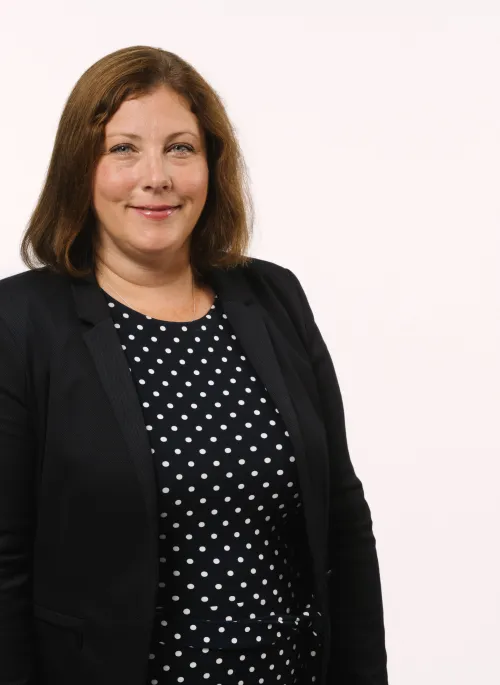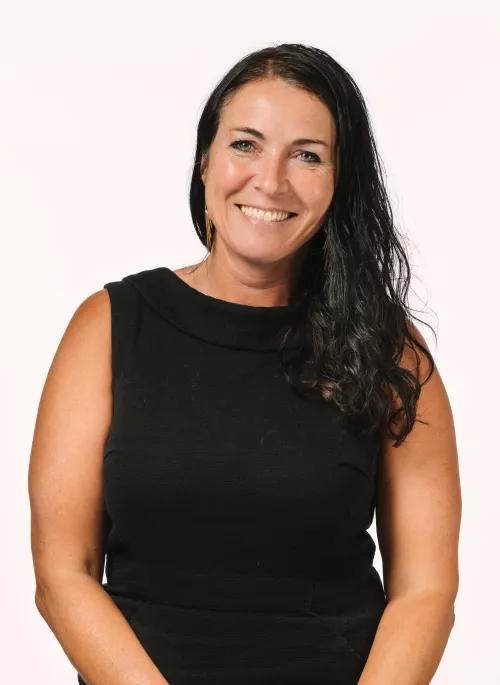Family Law Services
Collaborative Law
Speak with our expert collaborative law solicitors today. Our team of expert solicitors includes Julian Hunt, an experienced Resolution-trained Collaborative Lawyer. Julian's ability to achieve a resolution for his clients has been recognised in a leading law directory, Chambers UK 2016.
Overview of Collaborative Law
Family Law Services
Like Mediation, this is a form of alternative dispute resolution (“ADR”). In contrast to Mediation, where both parties meet with one neutral Mediator, within the Collaborative process each has their own solicitor, and issues are resolved through a series of round table meetings.
Within the Collaborative Family Law process, there is a shared commitment to avoid litigation. It provides an opportunity for couples to work together with their Collaborative Lawyers to find solutions that enable them and their family to move forward positively. You benefit from 2 lawyers working together rather than in opposition to one another and the process is very much future-focused.
Our experience is that if there is a genuine desire to achieve what is best for the family, lasting solutions will be found.
Collaborative Law is a legal process designed to facilitate the resolution of disputes. This is especially applied in family law matters, such as divorce or child custody, wherein the involved parties commit to engaging in respectful, honest, and genuine cooperation to seek a mutually acceptable resolution.
Collaborative Law typically offers a faster, more cost-effective alternative to going to court.
Typically, the Collaborative Law process takes around 3-5 roundtable meetings but there is no time limit on reaching an agreement.
The Collaborative Law process involves non-confrontational roundtable discussions between you and your partner. You will both have your legal representatives present, but all parties must agree to avoid litigation.
“Firstly, imagine two Lawyers representing a separating couple who contract with their clients NOT to go to court and to pursue, together, negotiations giving the parties responsibilities for their own settlement.
Then, imagine a process designed to encourage an agreement, forged together, that brings a sense of dignity to the participants (yes, even the Lawyers) which will allow a relationship to end with less acrimony.
Trained Collaborative Lawyers work together with couples after making a pledge with each other to resolve issues together in a series of face-to-face round table meetings. Central to the process is the commitment not to go to Court by agreeing that should there be a breakdown in any negotiations both Lawyers will play no further role. This commitment creates an incentive to be reasonable and liberates the Family Lawyer from their usual role and to be free to help the clients negotiate. Collaborative Lawyers put their energy and legal fees into negotiations and settlement, not adversarial trial preparation.
Pursuing the Collaborative process is definitely outside the box. I was one of the first Solicitors in the area to become a trained Collaborative Family Lawyer and I have worked on many Collaborative cases. The success rate is extremely high and I have found parties to have found the process empowering and liberating. Most importantly it has allowed couples to separate with dignity.”
Factsheets
Browse and download
Collaborative Law Factsheet
Your Family Law Experts
Get to know those who are here to help you

Jennie Apsey
Solicitor, Family Department
Areas of Specialism
Jennie is a Solicitor in the Family team, who advises in relation to Children Act litigation (private law), Financial Remedies on divorce, cohabitation agreements and disputes, and protection from domestic abuse/injunctive relief.
- Child arrangements orders
- Children – specific issue and prohibited steps orders - temporary or permanent removal from the jurisdiction, enforcement
- Financial remedies on divorce / dissolution of civil partnership - pension sharing, litigation and financial conduct
- Pre and Post-nuptial agreements
- Separation and cohabitation agreements
- Domestic violence injunctions
Recent Client Matters
- Jennie regularly represents parents in private children law proceedings where mental health issues, substance misuse, and allegations of domestic abuse are a feature.
- Jennie has recently successfully defended a Specific Issue application by a mother to remove a child from the jurisdiction and secured a Port Alert Order. She has also acted for the Applicant in a Specific Issue application to permanently remove children from the jurisdiction.
- Jennie has experience of acting for parents in Children Act proceedings that include Fact-Finding hearings.
- Jennie has experience of acting for clients in both long and short marriages and recently acted for the Applicant Husband in Financial Remedy proceedings following a very short marriage of 7 months’ duration where all the assets were in the wife’s name including the Family Home. A very successful outcome was secured for the client which enabled him to rehouse and settle significant liabilities.
- Jennie is often instructed to prepare Financial Consent Orders following agreements reached between parties directly, in mediation, or as a result of solicitor-led negotiation.
Qualifications, Membership
- Solicitor (PGDL)
Qualifications, Membership
Legal 500 “Star in the making”

Julian Hunt
Partner, Family Department
Areas of Specialism
Julian is a highly experienced family practitioner who heads up the Family Department. Julian is a trained Collaborative lawyer and Mediator. Julian is Top Ranked in the Chambers Legal Directory with testimonials including “a really good lawyer, experienced, calm and can fight his client’s corner with flair and creativity without making the dispute intractable.”
Julian’s focus is on resolving, not creating conflict, encouraging negotiation, and finding solutions. Julian is adept at bringing a calm, focused and if necessary, robust approach to contentious and complex financial situations. Julian will bring empathy and solutions to child related matters. Julian will strive to find the approach which will best benefit the individual and to prepare them for life after separation.
Julian’s specialties :
-
advising on high net worth and complex separations, involving businesses, Trusts, and pension issues
-
dealing with cases using the Collaborative model
-
resolving childcare disputes
-
advising on pre and post nuptial agreements
-
advising on cohabitation disputes
Recent Client Matters
- Acted for a Wife in Financial Remedy proceedings overcoming Husband’s refusal to provide full financial disclosure and comply with the Court timetable. Secured Penal Notices and multiple Cost Orders against the Husband and an excellent outcome for the Wife.
- Acted for a Wife in Financial Remedy proceedings that involved 5 hearings including obtaining a Legal Services Order. Secured significant lump sum for housing, repayment of debts and spousal periodical payments throughout the child’s minority.
- Acting for a Husband following a long marriage where Wife has issued Financial Remedy application. Included instruction of a single joint expert to value a company in which both parties are shareholders, a dispute in relation to matrimonial and non-matrimonial assets and the treatment of foreign assets. Successfully resolving matters outside of the Court process.
Qualifications
- Solicitor BA (Hons)
- Member of Resolution
- Founding member of Brightpod ( Collaborative Group) & Sussex Family Solutions (inter-disciplinary network of family professionals)
Recognition
Chambers ranked No 1 in Family/Matrimonial - “extremely experienced, sensible and really resolution-focused.” ‘Julian is one of the toughest negotiators but one of the most charming men you will ever meet.’
Legal 500 Ranked – “an experienced practitioner who is well known and respected by opponents and the judiciary.” “straight talking, trustworthy and well respected locally.”

Sarah Phillips
Partner, Family Department
Areas of Specialism
Sarah is a Partner in the Family team, who specialises in complex Children Act litigation (private law), Financial Remedies on divorce, cohabitation agreements and disputes, and protection from domestic abuse.
- Child arrangements orders – living and spending time arrangements
- Children – specific issue and prohibited steps orders - vaccination, education, name change, temporary and permanent removal from the jurisdiction, enforcement, parental alienation
- Children – contact to grandparents
- Financial remedies on divorce / dissolution of civil partnership - business and trust assets, pension sharing, litigation and financial conduct
- Pre and Post-nuptial agreements
- Separation and cohabitation agreements
- Domestic violence injunctions
Recent Client Matters
- Sarah regularly represents parents in private law proceedings where mental health issues, substance misuse, and allegations of coercive control, narcissism and parental alienation are a central feature.
- Sarah negotiated a financial settlement in which the client received an 80% share of the equity in the family home, and maintenance for five years to provide the client with time to attain financial independence without undue hardship.
- Sarah recently represented a father at a Fact Finding hearing in which findings were made against him, but following engagement in a DVPP, parenting courses and therapy, the father was able to secure an order for shared care of the parties’ two children.
- Sarah regularly settles financial remedy cases by way of advice during mediation, voluntary disclosure and solicitor-led negotiations, avoiding the cost and stress of contested proceedings for her clients.
Qualifications, Membership
- Solicitor (PGDL) City University
- Resolution Accredited Specialist Family Lawyer – Complex Financial Remedies
- Resolution Accredited Specialist Family Lawyer – Children Law Private
- Resolution qualified Collaborative Lawyer
- Member of Resolution
- Chambers - Legal 500
